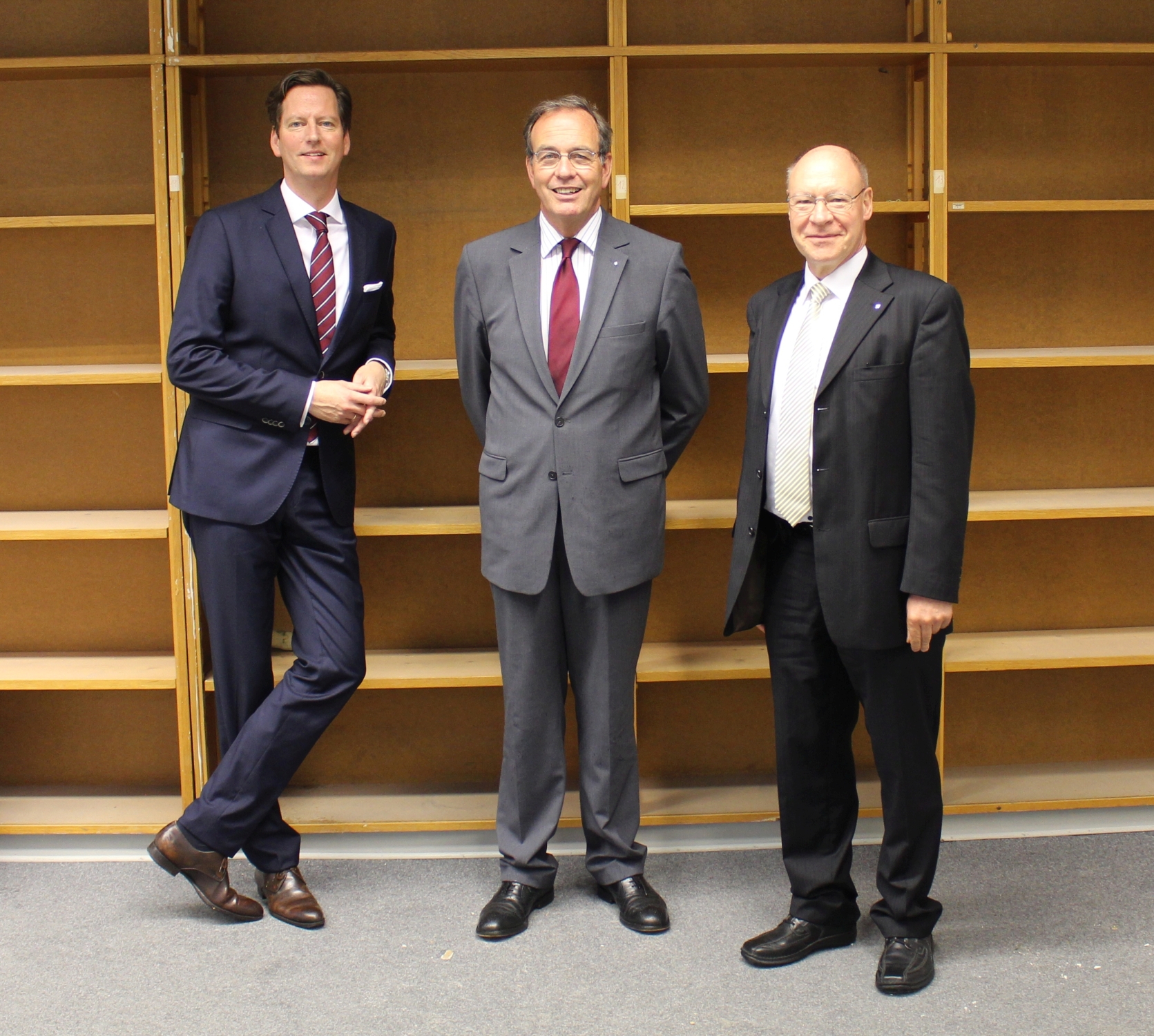Fraunhofer CEM begins its work: Focusing on the economics of materials for the business location Germany
Seventy percent of all new products in Germany are based on new materials or materials that have been developed further. However, which materials do the economy and our society need now and in future? The Fraunhofer Center for the Economics of Materials CEM will answer this question. The new center will become the interface between the challenges the industry is facing, such as digitalization, material efficiency or accelerated innovation cycles, on the one hand and the strategies of materials research on the other. The Fraunhofer CEM will advise businesses, researchers and policy-makers on issues related to the efficient use of raw and other materials and on a sustainable economy, and therefore contribute to the protection of the long-term advantages Germany and Europe offer as business locations.

"The industry is facing huge challenges when it comes to the efficient and sustainable use of raw materials and the need for future-proof materials. New, smart materials illustrate this in the era of Industry 4.0, along with on-demand production based business models and customized series down to a batch size of one," explains Prof. Reimund Neugebauer, the president of the Fraunhofer-Gesellschaft. "The development paths now on the horizon must be systematically identified in order to fully exploit all of their potential. With the Fraunhofer CEM, we have established a port of call that focuses equally on economic and technoscience aspects and can therefore facilitate sustainable value creation systems at a global scale."
The team of researchers will be headed by the center's founding directors Prof. Dr. Ulrich Blum, representing Martin Luther University Halle-Wittenberg (MLU), together with Prof. Manfred Füting and PD Dr. Christian Growitsch of the Fraunhofer Institute for Microstructure of Materials and Systems IMWS. It will be staffed by materials scientist experts and economists and therefore combines materials research with economics expertise. This combination makes it possible to design and plan material design, product design and the recycling of products that have reached the end of their life-span right from the beginning in a way that is economically and technically optimal. Some of the important issues that will be addressed will be the potential substitution of materials on the input side (for example substitutes for crucial imported raw materials such as rare earths), material efficiency improvement analyses and strategies, advice on the assessment of the consequences of technologies and regulations, the digitalization of materials and processes and also the development of re-using and recycling within the concept of Industry 4.0.
The Fraunhofer CEM therefore makes a major contribution to the circular economy implementation. The center will be located at the Fraunhofer IMWS in Halle (Saale) and will be run as a research group together with the MLU through its department for economic policy and economic research.
The Fraunhofer IMWS application-oriented research and development projects that focus on material evaluation and development and technology optimization represent the materials science basis of the Fraunhofer CEM. "We want to develop specific solutions for the economy and in the course of this focus not only on science expertise but also take the needs of the various industry sectors into account, and become involved in the design of appropriate business models," says Prof. Ralf B. Wehrspohn, the head of the Fraunhofer IMWS. In addition, the Fraunhofer CEM will also examine the policy strategy for raw and other material technologies whose planning horizon is still beyond the horizons which businesses take into account. "For Germany as an industry location, it is essential that we determine the right course at an early stage as we have many material intensive value creation chains in Germany and markets where the prices are extremely volatile. They are of great importance to the industry structure and to planning security when it comes to business investments," says Wehrspohn.
The research group has already identified the needs and target groups and defined some initial research projects during the preliminary phase. Additional research areas and roadmaps for the next projects were developed in a workshop with representatives from the industrial, science and political communities. The researchers will move into their premises on Friedemann-Bach-Platz square in Halle in the fall.